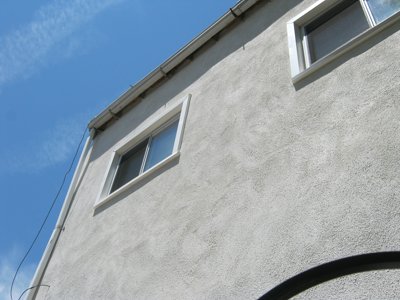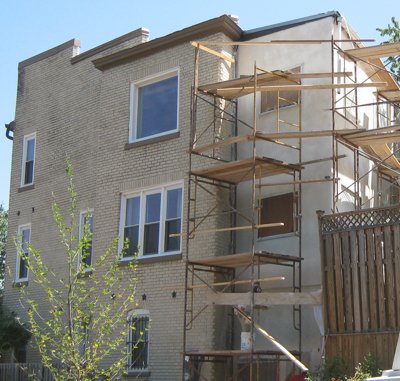Capitol Hill area
Washington, DC
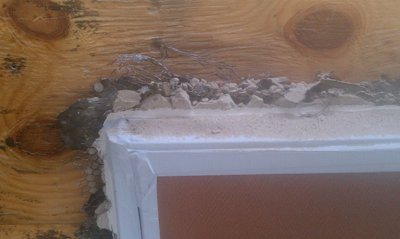
Photo shows how LACK OF FLASHING ABOVE
the window causes ROT BELOW window.
------------------------------------------------>>>>-->
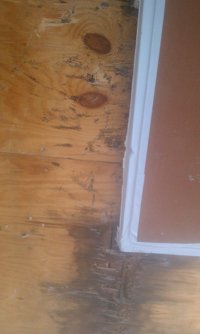
and big gob of caulk was removed, you can see the source of water infiltration.
This is the same window, I just couldn't stand back
far enough on the scaffold to take a picture of the whole window.
the stucco, runs behind the window moulding, between the jamb and the framing,or between the moulding and the sheathing and rots below the lower corners of the window. This is typical of the EIFS tear-offs we did, and rot occurs in stucco or other applications if there is no flashing over the window.
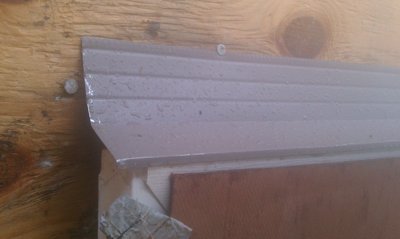
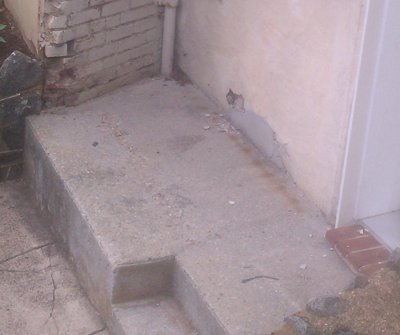
2 layers of tarpaper and lath and stucco. No more rot.
This is typical of most of the bottoms we see with
no weep or drainage. Have an ugly bottom ? I can handle it.
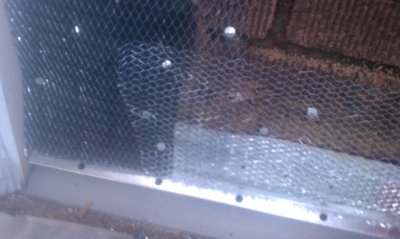
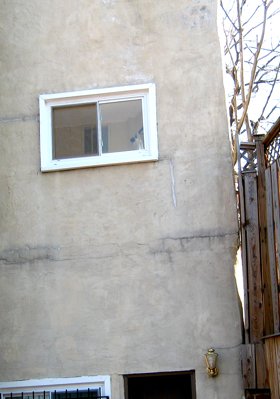
leaking. We put on a weep screed for drainage to keep the bottom from flaking.
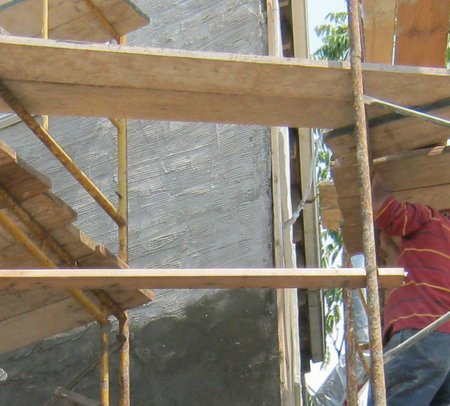
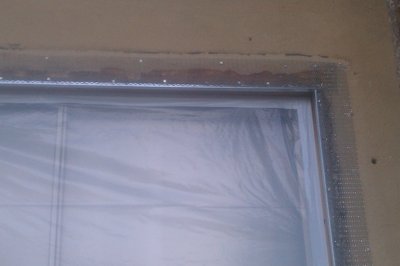
a stucco surround.
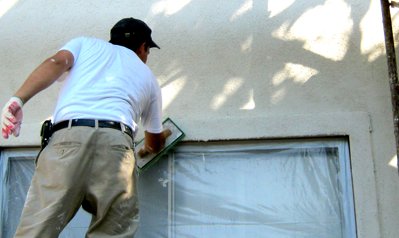
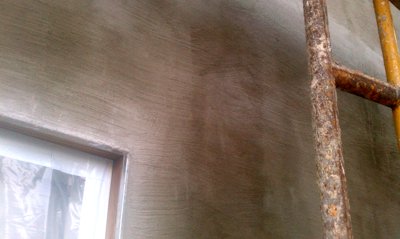
quite as wavy. We coated the back wall with a bonding coat of Flex con and mortar.
